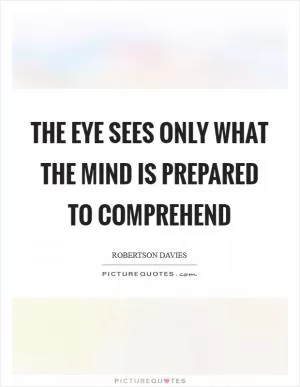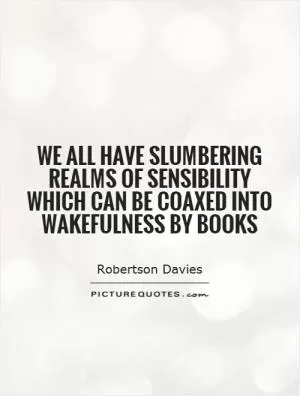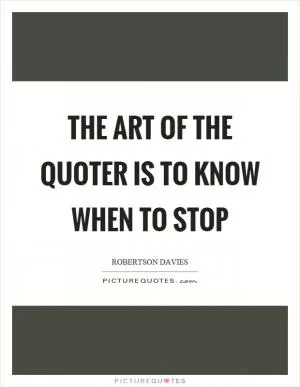Their very conservatism is secondhand, and they don't know what they are conserving

Their very conservatism is secondhand, and they don't know what they are conserving
Robertson Davies, a renowned Canadian novelist, playwright, and critic, often explored the theme of conservatism in his works. In his statement, “Their very conservatism is secondhand, and they don't know what they are conserving,” Davies delves into the idea that some individuals adhere to traditional values and beliefs without truly understanding the significance or origins of those beliefs. This concept is prevalent in many of Davies’ works, where characters grapple with the tension between tradition and modernity.Davies’ characters often embody a sense of conservatism that is rooted in tradition and societal norms. However, Davies suggests that this conservatism is often superficial and lacks a true understanding of its origins or purpose. In his novel “Fifth Business,” for example, the protagonist Dunstan Ramsay grapples with his conservative upbringing and the expectations placed upon him by society. Despite his adherence to traditional values, Dunstan struggles to find meaning and purpose in his life, ultimately leading him to question the very beliefs he once held dear.
Similarly, in “The Deptford Trilogy,” Davies explores the theme of conservatism through the character of Magnus Eisengrim, a magician who grapples with his own identity and the expectations placed upon him by society. Magnus embodies a sense of conservatism that is secondhand, as he adheres to traditional beliefs and values without truly understanding their significance. Throughout the trilogy, Magnus is forced to confront his own beliefs and question the very foundations of his conservatism.
Davies’ exploration of conservatism in his works serves as a critique of blind adherence to tradition and societal norms. He challenges his readers to question the origins and purpose of their own beliefs, urging them to seek a deeper understanding of the values they hold dear. By delving into the complexities of conservatism, Davies encourages his readers to think critically about the beliefs they hold and to consider the implications of blindly following tradition.












 Friendship Quotes
Friendship Quotes Love Quotes
Love Quotes Life Quotes
Life Quotes Funny Quotes
Funny Quotes Motivational Quotes
Motivational Quotes Inspirational Quotes
Inspirational Quotes